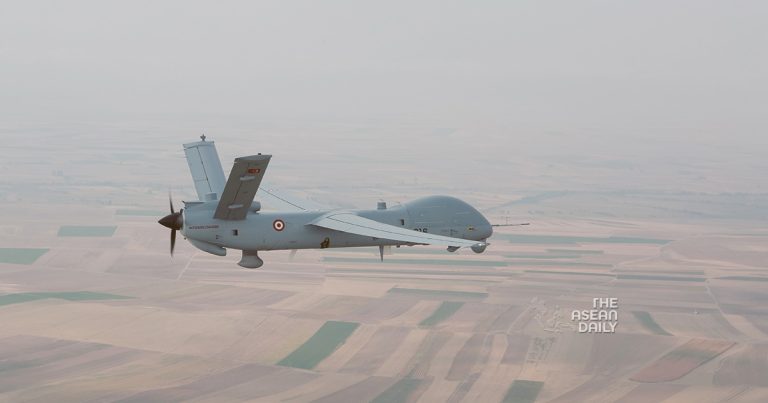3-8-2023 (JAKARTA) ANKA, Turkey’s domestically designed and manufactured unmanned aerial vehicle (UAV), has garnered attention from countries in Africa and Asia, including Indonesia. The interest from Indonesia began when the Defense Ministry initiated a tender for UAV procurement in 2018 to enhance the combat readiness of the Indonesian Defense Forces. Turkish Aerospace, the developer of ANKA, participated in the tender and offered the UAV to Indonesia. The procurement process was delayed due to the presidential election in 2019 but resumed under the leadership of Defense Minister Prabowo Subianto. Turkish Aerospace and PT Dirgantara Indonesia signed a framework agreement for cooperation in the manufacturing of drones, and a subsequent contract was signed for the purchase of 12 ANKA units.
The contract, valued at $300 million, includes technology transfer, assembly of six ANKA units in Bandung, West Java, and various training programs and support. Turkish Aerospace will send the components to Indonesia starting in August 2023, and the delivery of the ANKA units is planned within 32 months. ANKA is a medium altitude long endurance (MALE) UAV capable of performing multiple functions such as intelligence, surveillance, and reconnaissance (ISR), target detection, electronic warfare, and air-to-ground strikes.
The success of Turkey’s defense industry in producing its own combat drone is considered a significant achievement, as only a few countries have the capability to do so. Indonesia, which unveiled its domestic UAV prototype called the Black Eagle in 2019, has faced challenges in its development. Technical issues and technology ownership have hindered its progress, prompting a shift in focus towards civilian applications. The collaboration with Turkish Aerospace in assembling ANKA units provides an opportunity for Indonesia’s defense industry to learn and develop its capabilities.
Indonesia has the potential to establish a robust defense industry similar to Turkey, but it requires consistent support, particularly in terms of financing. The development of a UAV and associated infrastructure takes time and resources, and Indonesia’s commitment to nurturing its defense industry will be crucial in realizing its potential.




